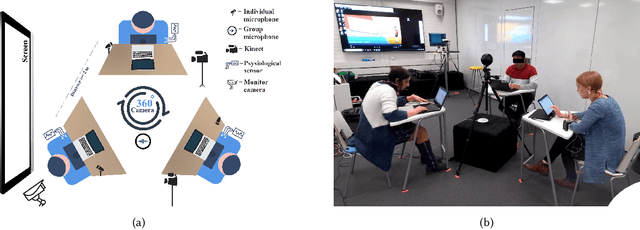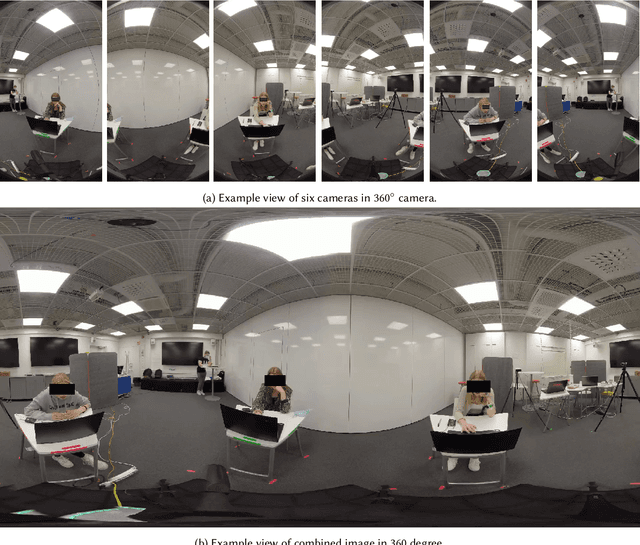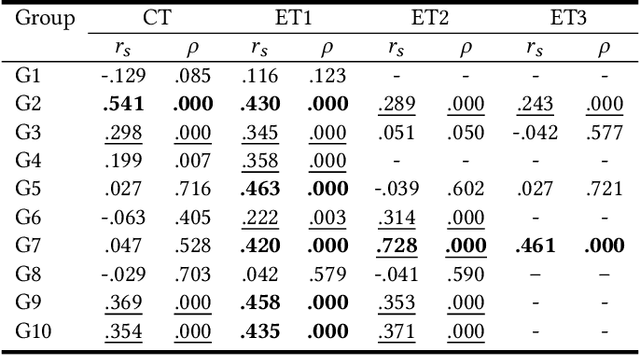Exploring Interactions and Regulations in Collaborative Learning: An Interdisciplinary Multimodal Dataset
Paper and Code
Oct 11, 2022



Collaborative learning is an educational approach that enhances learning through shared goals and working together. Interaction and regulation are two essential factors related to the success of collaborative learning. Since the information from various modalities can reflect the quality of collaboration, a new multimodal dataset with cognitive and emotional triggers is introduced in this paper to explore how regulations affect interactions during the collaborative process. Specifically, a learning task with intentional interventions is designed and assigned to high school students aged 15 years old (N=81) in average. Multimodal signals, including video, Kinect, audio, and physiological data, are collected and exploited to study regulations in collaborative learning in terms of individual-participant-single-modality, individual-participant-multiple-modality, and multiple-participant-multiple-modality. Analysis of annotated emotions, body gestures, and their interactions indicates that our multimodal dataset with designed treatments could effectively examine moments of regulation in collaborative learning. In addition, preliminary experiments based on baseline models suggest that the dataset provides a challenging in-the-wild scenario, which could further contribute to the fields of education and affective computing.
 Add to Chrome
Add to Chrome Add to Firefox
Add to Firefox Add to Edge
Add to Edge